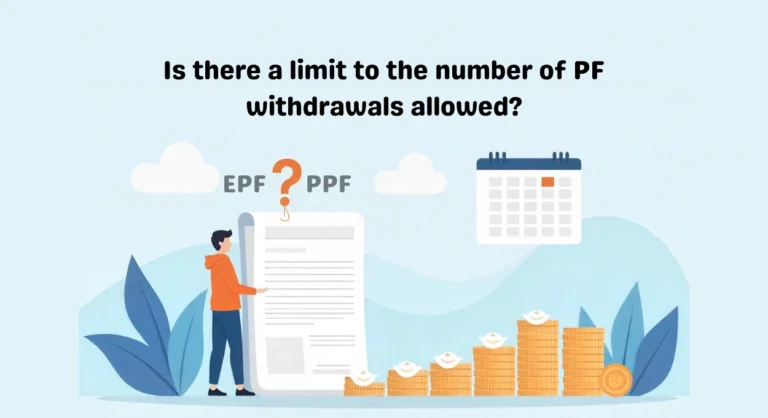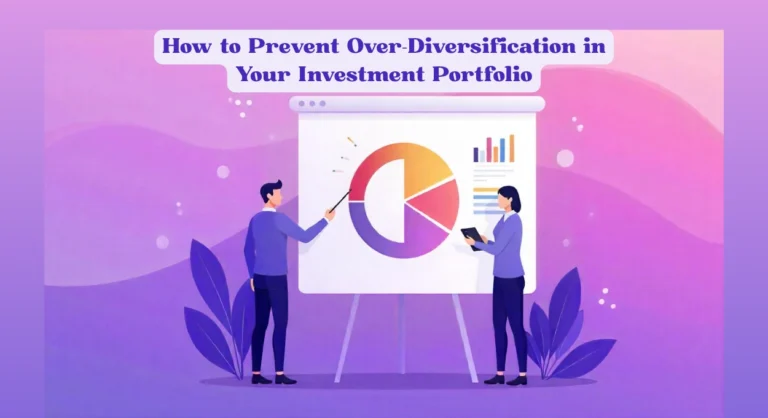NPS vs ELSS: Simplifying Your Tax-Saving Choices
“Nobody likes seeing their pay check shrink because of taxes, right? That’s why figuring out how to manage your taxes is a key part of any good financial plan. India has tons of ways to save on taxes, but it can be overwhelming trying to figure out which option is right for you. Two of the most popular choices are the National Pension System (NPS) and the Equity Linked Savings Scheme (ELSS). Both can help you cut down on your taxes, but they work in totally different ways. So, which one’s the better fit for you? Let’s take a closer look at the differences between NPS and ELSS and see what works best for your situation.”
What is NPS?
NPS is a government-backed retirement savings scheme designed to help individuals build a retirement corpus. It’s a long-term investment that combines equity, corporate bonds, and government securities to provide stable returns.
Key Features of NPS:
- Diversified Investment: Invests in a mix of asset classes, including equity (up to 75%), corporate bonds, and government securities.
- Two Types of Accounts:
- Tier I (Mandatory): Lock-in period until retirement (age 60).
- Tier II (Optional): No lock-in period, works like a savings account.
- Minimum Investment: ₹1,000 per year for Tier I, ₹250 for Tier II.
- Tax Benefits: Up to ₹2 lakh under Section 80C and 80CCD (1B) of the Income Tax Act.
- Withdrawals: Limited withdrawals allowed after 3 years in specific cases.
- Returns: Moderate but stable, as it includes debt instruments along with equity.
Also Read :- https://ipofront.in/why-past-performance-isnt-everything-choosing-equity-mutual-funds/
What is ELSS?
ELSS is a type of mutual fund that primarily invests in equities (stocks), offering higher returns but also coming with higher risk.
Key Features of ELSS:
- Short Lock-in Period: Just 3 years – the shortest among tax-saving options.
- High Equity Exposure: Investments are mainly in the stock market, meaning potential for higher returns.
- Minimum Investment: ₹500 per month (via SIP) or a lump sum.
- Tax Benefits: Up to ₹1.5 lakh under Section 80C of the Income Tax Act.
- Withdrawals: Full withdrawal after 3 years.
- Returns: Higher potential returns due to equity exposure, but also more market volatility.
NPS vs ELSS: A Quick Comparison
| Parameter | NPS (National Pension System) | ELSS (Equity Linked Savings Scheme) |
|---|---|---|
| Investment Type | Mix of equity, bonds, and government securities | Primarily equity-based mutual fund |
| Lock-in Period | Till retirement (60 years), limited withdrawals allowed | 3 years |
| Minimum Investment | ₹1,000 (Tier I), ₹250 (Tier II) | ₹500 (SIP or lump sum) |
| Risk Level | Moderate (due to diversified portfolio) | High (due to full equity exposure) |
| Potential Returns | Moderate and stable | Higher returns but with higher risk |
| Withdrawals | Partial allowed after 3 years under conditions | Full withdrawal after 3 years |
| Tax Benefits | Up to ₹2 lakh under 80C & 80CCD (1B) | Up to ₹1.5 lakh under 80C |
| Ideal For | Long-term retirement planning | Short-to-medium term wealth creation |
Which One Should You Choose?
Choose NPS If:
✅ You want a disciplined, long-term retirement plan. ✅ You prefer moderate risk with stable returns. ✅ You want higher tax savings (up to ₹2 lakh). ✅ You don’t need easy liquidity and can lock in funds until retirement.
Choose ELSS If:
✅ You want a shorter lock-in period (3 years). ✅ You are comfortable with higher risk for higher returns. ✅ You want to invest in stocks and benefit from market growth. ✅ You need a tax-saving investment that also allows quick access to funds.
Tax Benefits: Which One Saves More?
- NPS: Up to ₹2 lakh in tax deductions under Section 80C & 80CCD (1B).
- ELSS: Up to ₹1.5 lakh tax deduction under Section 80C.
If you’re looking for maximum tax savings, NPS provides a slight edge. However, if you also want liquidity, ELSS is a better choice.
Also Read :- https://ipofront.in/how-the-rbi-repo-rate-cut-in-2025-affects-loans-for-different-age-groups/
What About Returns?
| Investment | Average Returns |
|---|---|
| NPS | 8-10% (Moderate growth, stable) |
| ELSS | 12-15% (Higher growth, more risk) |
👉 ELSS has the potential for higher returns, but since it’s equity-based, market fluctuations can impact performance.
👉 NPS provides stability, making it a safe long-term bet for retirement.
Flexibility: Which One is Easier to Manage?
- NPS: Offers two choices – Auto Mode (default asset allocation) or Active Mode (investor chooses allocation).
- ELSS: Allows easy switching between different funds based on market performance.
✅ If you like control over asset allocation, NPS’s active mode is great. ✅ If you prefer fund flexibility, ELSS wins.
Final Verdict: What’s Best for You?
- If you want retirement security, go for NPS.
- If you want higher returns with liquidity, go for ELSS.
- If you want both, consider investing in both for diversification.
Pro Tip: Some investors combine NPS & ELSS to enjoy the best of both worlds – retirement security + wealth creation!
Also Read :- https://ipofront.in/conquering-debt-with-ease-a-guide-to-debt-mutual-funds/
Conclusion: The Right Choice for You
Both NPS and ELSS are great tax-saving tools but cater to different needs:
- NPS is ideal for long-term, low-risk retirement planning.
- ELSS is perfect for short-to-medium-term wealth creation with tax benefits.
Your choice should depend on your investment goals, risk appetite, and financial timeline. Whether you pick NPS, ELSS, or both, investing wisely will help secure your financial future!
Frequently Asked Questions (FAQs)
1. Can I invest in both NPS and ELSS?
Yes! Many investors use NPS for retirement and ELSS for medium-term tax-saving investments.
2. Which has better returns – NPS or ELSS?
ELSS generally offers higher returns due to full equity exposure, but NPS provides more stability.
3. Can I exit NPS early?
Partial withdrawals are allowed after 3 years for specific purposes, but full withdrawal is only after 60 years.
4. Is ELSS completely tax-free?
No. While investments get tax deductions under Section 80C, long-term capital gains above ₹1 lakh are taxed at 10%.
5. Is NPS risk-free?
No investment is risk-free, but NPS carries lower risk due to its diversified portfolio.
Still unsure? Talk to a financial advisor to find the best strategy for your needs!







